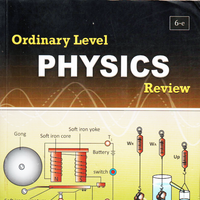Search
Books+
Searching 1,73 books
Search related to the career Physicist
Introduction:
Physicists play a crucial role in driving scientific advancements across various fields. Through their research, experimentation, and theoretical contributions, physicists contribute to expanding our understanding of the natural world and developing new technologies. Here are some key ways in which physicists contribute to scientific advancements:
1. Conducting Research:
Physicists actively engage in research to explore fundamental principles and phenomena of the universe. They design and conduct experiments, collect data, and analyze the results to gain insights into various physical phenomena. This research often leads to the discovery of new laws, principles, and theories that contribute to scientific advancements.
2. Developing Theories and Models:
Physicists develop theories and mathematical models to explain and predict the behavior of physical systems. These theories provide a framework for understanding complex phenomena and guide further research. For example, Albert Einstein's theory of relativity revolutionized our understanding of space, time, and gravity, leading to numerous scientific advancements.
3. Advancing Technological Innovations:
Physicists contribute to technological advancements by developing new materials, devices, and technologies. For instance, the invention of the transistor, which revolutionized electronics, was made possible through the understanding of quantum mechanics. Physicists also contribute to fields like optics, telecommunications, energy production, and medical imaging, among others.
4. Exploring the Frontiers of Knowledge:
Physicists push the boundaries of knowledge by exploring uncharted territories. They investigate phenomena that are not yet fully understood, such as dark matter, black holes, or the origins of the universe. By delving into these frontiers, physicists expand our understanding of the universe and pave the way for future scientific breakthroughs.
5. Collaborating with Other Disciplines:
Physicists often collaborate with researchers from other scientific disciplines, such as chemistry, biology, and engineering. These interdisciplinary collaborations foster innovation and lead to advancements in various fields. For example, collaborations between physicists and biologists have contributed to the development of medical imaging techniques like MRI.
6. Educating and Inspiring Future Scientists:
Physicists play a vital role in educating and inspiring future generations of scientists. They teach in universities, mentor students, and share their knowledge through publications and conferences. By nurturing young minds and fostering scientific curiosity, physicists contribute to the growth of scientific advancements in the long run.
Conclusion:
Physicists contribute to scientific advancements through their research, theoretical developments, technological innovations, exploration of new frontiers, interdisciplinary collaborations, and educational efforts. Their contributions not only expand our understanding of the natural world but also drive technological progress and shape the future of scientific discoveries.
Source: Various AI tools
Sayansi
Bunilizi ya kisayansi
Uhandisi
Books tagged engineering
Computer science
Searched in English.



















































